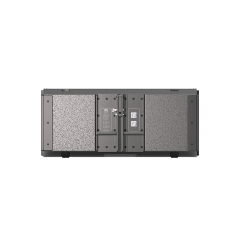There are a few things that DJs should think about when choosing the best speaker system for an event. First and the main factor that needs to be considered is Power output. DJ's should check for a program gives the demand summit to all around amazing sound on this report size. In a smaller room or for quiet background music, an amp may put out 100 watts of power per channel with very clear quality sound but as the size of your audience increases to larger rooms and areas you will need up to 5000 watts if not higher! Especially relevant is the system's continuous power rating—the measure of RMS or Root Mean Square wattage that indicates how much volume (and amplifier thrash and distortion) you can enjoy before blowing tweeters.
Another important aspect is frequency response. A Wide Frequency Range – Since a DJ replays different sounds that are part of the music, DJs need to have models with broad frequency ranges which will also cover deep bass and crispy highs. An average of 20 Hz to the fullest reach at 20 kHz should encompass all sounds a human is able hear, so those deep bass drops sound punchy and strong while treble frequencies are keeping vocal notes clean as clarity. You can get by with sub-100 Hz systems for things like EDM and hip-hop, since the bass tends to be a big part of that stuff.
In the case of mobile DJs who travel from venue to venue, this is usually one of the first things that come into play! Features such as handles or wheels, compact designs and the use of lightweight materials can help reduce transportability concerns for any speaker system. For example, a 50-pound speaker that gets the job done does not require much heavy lifting where as a full length unit weighing in at more than double brings nothing but added weight and an evidently massive decline on DJ selling time. Additionally, the speakers should be of a suitable size for venues at which they usually play to deliver an even amount power and portability.
As a DJ, you may need to take it with you everywhere and that means that your device has to handle all the traveling without breaking easily. Seek out speakers with durable constructions, such as high-density wood or reinforced plastic cabinets that shield against physical harm. Weather-resistant features are important for events outdoors due to possible exposure to the elements such as rain or dust. A system that is durable not only last longer but reduces the risk of failures occurring at a critical moment.

Technicalities around sound dispersion Speakers of less predictable design, such as the horn-loaded variety used in PAG cages for open-wheel racing or ADCs (airborne dynamic systems) employed at some sports venues ensures good focus on audience areas directed away from reverberant surfaces. A speaker with a 90° horizontal x 60 ° vertical dispersion pattern, for example can focus sound exactly where it needs to be - across the dance floor but not spraying energy in areas that do not need as much reinforcement or level.
Another crucial aspect would be the integration with other DJ gear. Look for speaker systems that offer multiple types of inputs — such as XLR, TRS and RCA — or you may not be able to connect your mixers (or controllers) or other gear. Built-in power amplification and DSP (Digital Signal Processing) in some systems can also make setup easier while offering a wider range of sound customization options with respect to audio shaping designed for different music genres or the acoustics at your gigs.
Quality equipment is something that famous DJs always mention. I remember reading this quote from Tiësto before: "Having the right sound system can make or break your show. Again speaking to that, DJs must rely on a solid speaker system with new speakers in order to get good audio and still sounds well even if the event is small scale. Being able to reproduce sound well, and with great power can turn a good sounding show into an experience where the audience actually feels the music in addition to hear it.
In the end, do not miss out on home long-term price. The temptation runs into the cheaper price point, and though it's a DJs budget that drives most to these affordable turntables for scratching; how much is too little when you sacrifice quality (and durability) as well. For the third solution in this article, $1K – $3K is generally where you'll find your sweet spot: a mid-range system that’s clear and clean enough for professional requirement. By investing in a quality DJ speaker system, it ensures that the equipment is performing well and reliable for many years to come which will save you from costs of expensive repairs or replacements.
To sum up, siding with a speaker system for DJs should mostly come down to power output, frequency response, portability and durability.. Add sound dispersion + integration to the short list of things you must consider as well. If they locked down these variables, however, they could choose a system that would make them better and deliver an unforgettable experience for their fans.
